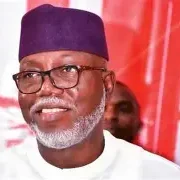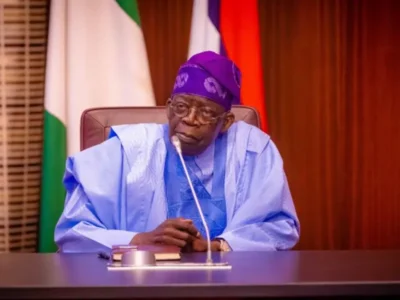The Nigerian economy has experienced a significant downturn in the past ten days following U.S. President Donald Trump’s designation of Nigeria as a “Country of Particular Concern” (CPC) and his threat of possible military action. The announcement has sent ripples through the financial markets, shaking investor confidence and triggering sharp losses across key sectors.
The Nigerian Exchange Limited (NGX) extended its bearish trend on Monday, following a loss of N2.8 trillion last week, while the Naira weakened across official and parallel markets to close at N1,437.29 per dollar. Analysts attribute the decline directly to fears sparked by Trump’s comments.
Dr. Muda Yusuf, CEO of the Centre for the Promotion of Private Enterprise, had earlier warned that such threats could undermine investor confidence in Nigeria.
Speaking to DAILY POST, former Chartered Institute of Bankers of Nigeria (CIBN) president Mazi Okechukwu Unegbu said the downturn was expected. “When Trump made the statement, there was fear in the air, which affected investors’ confidence. Many have started to hold off on their investment plans for the NGX,” he explained.
Unegbu added that while the statement had widespread effects across Nigeria’s economy, it also presents a strategic investment opportunity for savvy investors. He emphasized the need for increased local production and reduced import dependence to stabilize the Naira. Improving security, particularly to boost agriculture, is also key to restoring investor confidence, he noted.
On his part, economist and university don Prof. Godwin Oyedokun linked the recent sharp depreciation of the Naira and the N2.8 trillion loss in equities to rising anxiety over Nigeria’s international standing. He warned that the CPC designation could fuel concerns over diplomatic sanctions, capital flight, and heightened geopolitical risks.
“The designation signals serious international scrutiny, often linked to human rights, governance, or security concerns. Markets respond immediately because investors anticipate potential trade restrictions or tensions that could disrupt economic activity,” Oyedokun explained.
He urged Nigerians to remain calm and avoid panic-driven actions such as speculative forex purchases or hasty investment withdrawals, which could worsen market volatility.
Oyedokun also called on the government to engage diplomatically with the U.S., clarify concerns behind the CPC designation, and implement reforms to stabilize the economy. “Strengthening governance, promoting industrial diversification, and enhancing domestic productivity are crucial to reducing overreliance on foreign perception and building long-term resilience,” he advised.
While the immediate economic shock is severe, experts agree that a measured, strategic response can help Nigeria restore investor confidence and reposition itself more positively on the global stage.




















Comments